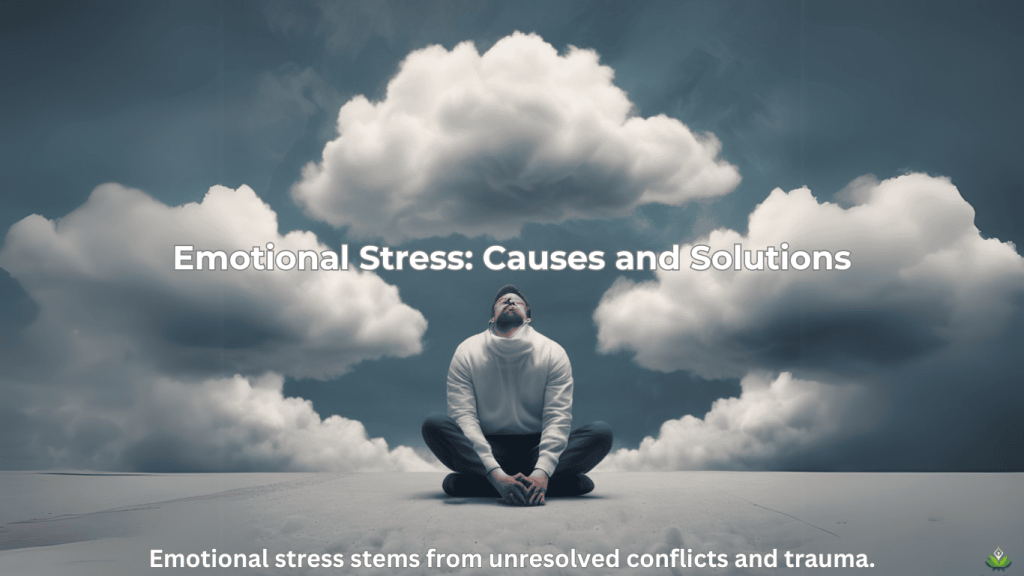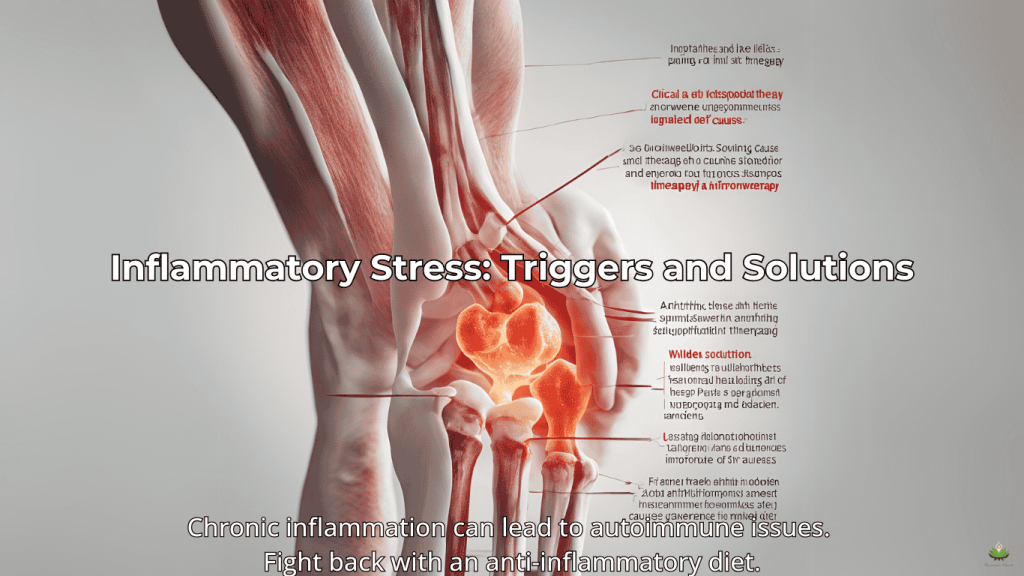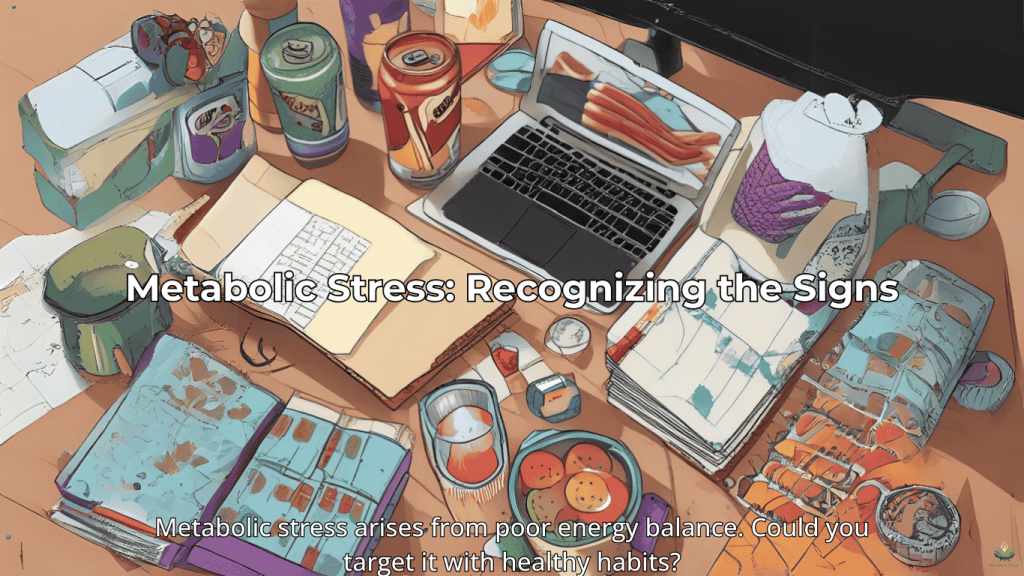Introduction
Pressure is not merely a rare annoyance—it’s a widespread issue that impacts nearly every aspect of health. Studies reveal that 55% of adults feel stressed most of their day, while workplace stress costs employers approximately $300 billion annually due to decreased productivity.
Stress doesn’t always show up as a feeling of overwhelm. It can manifest as physical aches, immune imbalances, or metabolic disruptions. Each type of **stress—emotional, mechanical, inflammatory, and metabolic—**creates unique challenges, and understanding these can empower you to take control.
This article will elaborate on various types of stress, their health consequences, and some effective stress management measures.
Why Knowing Stress Types Is Important
Suppose you are tired and irritable but don’t realize that it’s emotional stress caused by unresolved conflict. Many people mistakenly attribute joint pain caused by mechanical stress to aging. Different types of stress require tailored solutions; identifying the root cause is necessary to make your efforts to reduce stress practical.
Recognizing your stress type—whether emotional, mechanical, inflammatory, or metabolic—helps you target your response and regain balance in your life.
Emotional Stress

Emotional stress is the result of mental and emotional tension, which unresolved conflicts, unprocessed trauma, or personal difficulties may cause.
Key Characteristics
- Heightened emotional responses: Anxiety, anger, or sadness.
- Brain imbalance: The decreased level of dopamine and serotonin brings about distorted sensory perception.
- Behavioral changes: Withdrawal from close relationships or reduced interest in hobbies.
Real-Life Example
Picture Jane, a busy entrepreneur, waking up every morning in anxiety for work. Arising with the preoccupation of tight deadlines and feelings of incompetence, she suffers from emotional stress that becomes chronic: insomnia and fatigue further worsen her productivity.
Effects on Health
- Brain inflammation and disrupted neural pathways.
- Elevated blood pressure increases cardiovascular risk.
- Sleep disturbances and chronic fatigue.
Management Techniques
- Mindfulness Meditation: Dedicate 10 minutes daily to focused breathing or body scans.
- Emotional Freedom Techniques (EFT): Tapping exercises to release negative emotions.
- Therapy: Work with a counselor to process unresolved conflicts and build coping mechanisms.
Mechanical Stress
Mechanical stress results from physical strain or trauma to the body. It can range from minor injuries to chronic physical wear and tear caused by poor posture or repetitive movements.
Key Characteristics
- The external factors include accidents, fractures, surgeries, and overuse of particular body parts.
- Musculoskeletal strain: muscle spasm or abnormal joint alignment.
Real-Life Example
John works as a warehouse worker and has to lift heavy items daily. This lifting of heavy loads with him ultimately results in back pain and stiffness due to repetitive strains over time. His poor posture and mechanical stress develop into persistent discomfort, affecting his general quality of life.
Effects on Health
- Muscle spasms or issues related to the structure of bones and joints.
- The hardening of arteries will increase cardiovascular risks.
- Joint degeneration, exacerbated by dehydration or nutrient deficiencies.
Management Techniques
- Physical Therapy: Work with a therapist to improve areas of weakness and alignment.
- Hydration and Nutrition: Adequate fluids and nutritious food to help recover.
- Massage Therapy: This will relieve muscle tension and help blood flow.
Inflammatory Stress

Inflammatory stress is when the immune system reacts against harmful triggers, including infections, toxic agents, or physical trauma. Long-term, chronic inflammation may lead to disastrous effects on health.
Key Characteristics
- Triggers: These include environmental toxins, poor diet, and autoimmune reactions.
- Symptoms: Swelling, redness, or persistent fatigue.
Real-Life Example
Maria is a 45-year-old teacher who has always felt her joints ache continuously and has a lot of brain fog after meals. A medical professional later diagnosed her with an autoimmune disorder from chronic inflammatory stress.
Effects on Health
- Impaired lymphatic function, leading to toxin buildup.
- There is a higher likelihood of developing autoimmune disorders such as rheumatoid arthritis.
- Delayed healing from injuries or infections.
Management Techniques
- Anti-Inflammatory Diet: Incorporate leafy greens, turmeric, and fatty fish.
- Detoxifying Practices: Try dry brushing or sauna therapy to encourage toxin elimination.
- Immune-Supporting Habits: Get adequate sleep, practice yoga, or tai chi.
Metabolic Stress

Metabolic stress happens when there’s a mismatch in how our bodies use energy. A bad diet, hormonal changes, or insufficient physical activity often cause it.
Key Characteristics
- Hormonal imbalances include an imbalance of cortisol, insulin, or thyroid hormones.
- Fatigue: An inability to sustain energy throughout the day.
Real-Life Example
Nikola is a software engineer who often skips meals and washes them with energy drinks to stay awake. Unhealthy eating habits and insufficient physical activity resulted in his weight gain and prediabetes, both hallmarks of metabolic stress.
Effects on Health
- Heightened chances of developing metabolic conditions like diabetes and obesity.
- Poor blood circulation leads to fatigue and dizziness.
- Reduced ability to handle physical and emotional changes.
Management Techniques
- Balanced Diet: Focus on whole foods, healthy fats, and moderate carbohydrates.
- Consistent Physical Activity: Strive for at least 30 minutes of exercise each day.
- Hormonal Imbalance: Consult a professional in thyroid or adrenal-related problems.
Overlap Between Types of Stress
No form of stress exists in isolation. For example:
- Emotional stress worsens inflammation and leads to autoimmune responses.
- Mechanical stress can lead to emotional strain due to chronic pain or immobility.
- Metabolic stress can undermine emotional resilience, and the latter creates a vicious circle of fatigue and anxiety.
By recognizing these overlaps, you can develop a global stress management plan that simultaneously takes care of several stress layers.
How Stress Disrupts Nutrient Absorption
One of the most shared consequences of all irritants is decreased nutrient intake. Chronic stress changes the profile of the digestive system, slicing down the body’s potential to absorb vital vitamins and minerals for human health, such as magnesium, B vitamins, and omega-3s. Deficiency in these elements opens channels for augmented fatigue, inflammation, and emotional instability.
Quick Fix
It is worth considering the use of good-quality supplements and stress-relieving habits that can help in restoring balance.
Tools to Identify Your Stress Type
Stress Quiz: In the list below, identify symptoms that will help you pinpoint the prevalent type of stress.
Health Journal: Monitor symptoms, diet, and stressors over time.
Professional Help: Consult therapists, nutritionists, or primary care physicians for recommendations.
Key Takeaways
- Stress has many types: emotional, mechanical, inflammatory, and metabolic.
- Consider high-quality supplementation concurrent with a lifestyle of reducing stress to restore balance.
- Targeted strategies, including mindfulness, physiotherapy, proper nutrition, and hormone regulation, can best minimize stress.
Call to Action
What kind of stress do you experience most frequently? Follow and find your dominantly appearing type of stress, plus strategies! Follow @holisticalmethod daily for connecting to the best tips and resources on how to stress at its very roots.